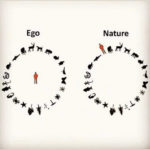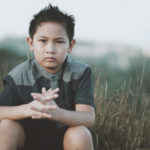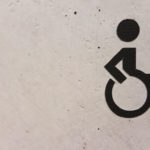
Today I am featuring an AfterTalk essay on “the wars” by one of my mentors, Robert Neimeyer.
It is beyond my comprehension that we find it acceptable to order murder, period. But even more heinous? Americans taking sides and attacking and murdering Palestinians and Jews within the United States.
A Grief and the Holidays Compendium
Over the last few weeks, I’ve been corresponding with friends and colleagues in Israel in the wake of the horrific attack on civilians on the part of Hamas, as well as talking for long hours with Muslim friends and colleagues who are following the resulting war with great concern. Tragically, we witnessed what a pogrom looks like in this deadly century, when the atrocities are captured not only in the words of traumatized survivors but even in the helmet cameras and smart phones of the murderers. Subsequently, we have been reminded—if any reminder is needed as the war in Ukraine continues to rage—of the unspeakable impact of urban warfare on civilian populations, in this case, principally in Gaza.
And yet it must be spoken. I know people of many countries and faiths who share in some measure the shock and horror of this unfolding tragedy, and whose hearts and aid go out to both the Jewish people and Palestinian civilians. There will always be xenophobia, cultural chauvinism, religious zealotry, political ambition and ethnic hatred, though we try for our short lifetimes to grow in compassion and understanding and to foster these values in all we do. But both the terrorism of Hamas and the subsequent decimation of neighborhoods and hospitals in Gaza must be repugnant to all people of conscience.
The flaring up of this seemingly timeless cultural and political rift gives further evidence that war inherently leads to incalculable casualties on both sides of any conflict, one of which is our fundamental humanity. Ensuring that basic humanitarian aid is provided to the most vulnerable populations is the minimal ethical responsibility borne by the combatants of both nations, and indeed also by the larger world community.
Just recently the Portland Institute, which I direct, partnered with Turkish psychologists to offer training in addressing the long-term effects of traumatic bereavement in the wake of the massive earthquakes that left hundreds of thousands of family members bereaved in February of this year. Only a few months ago we collaborated similarly with psychologists in Ukraine. And now, as Israeli clinicians and social workers rally to provide services to bereaved survivors of the massacre, those of us who live at great distance from the conflict may once again have the opportunity to reach out across the frontiers of our lives to respond as we can to survivors of the mounting losses, whatever their country of residence. My hope is that we will do this with cultural humility and a willingness to learn the needs of both our fellow professionals in the region, as well as the clients they serve.
The world is too small a place to allow such tragedy to go unwitnessed and unattended.
—————
Dr. Neimeyer is Professor of Psychology at University of Memphis, past President of the Association for Death Education and Counseling, Director of the Portland Institute for Loss and Transition and transition, and Chair of the International Work Group for Death, Dying & Bereavement. He has written 27 books on death and dying, and I am fortunate to have written a contributing chapter in one of them.






























